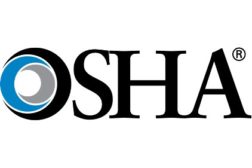Home » OSHA standards
Articles Tagged with ''OSHA standards''
OSHA announces proposed silica exposure rule
Agency says it will save 700 lives a year
August 26, 2013
Federal OSH law doesn’t trump state worker’s comp law
Wisc. worker's injury due to OSHA standard violation
August 22, 2013
OSHA’s construction confined space standard
Compare OSHA’s proposed standard to general industry rules
July 9, 2013
Become a Leader in Safety Culture
Build your knowledge with ISHN, covering key safety, health and industrial hygiene news, products, and trends.
JOIN TODAYCopyright ©2025. All Rights Reserved BNP Media.
Design, CMS, Hosting & Web Development :: ePublishing











